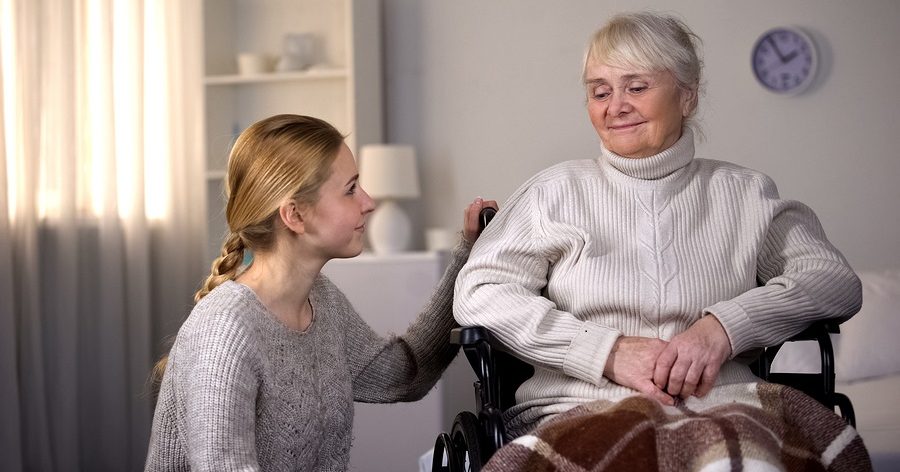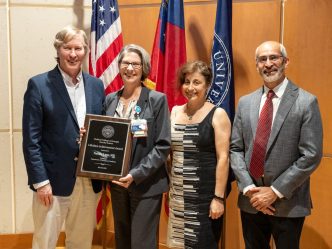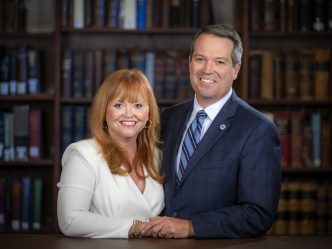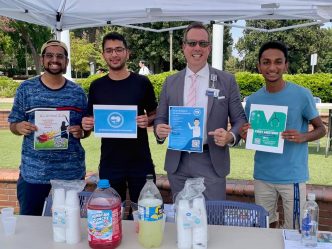One of the most heartbreaking aspects of COVID-19 for patients being treated for the disease is the isolation. To reduce the spread of infection, patients with COVID-19 cannot have family or friends there for support.
That is where a team of chaplains and support staff, in addition to nurses, step in to practice patient- and family-centered care at Augusta University Health to help connect patients to their families, which is so important in the healing process.
“A huge goal is keeping patients and families connected via technology during this time,” said Julie Moretz, assistant vice president of Patient- and Family-Centered Care and chief experience officer at AU Health. “Sometimes patients don’t have a laptop or even their cell phone with them because maybe they didn’t know they were going to be admitted to the hospital. Perhaps they have a phone but their family may need assistance downloading an app that also supports the patient’s phone.”
The Center for Patients and Families can provide patients, and their families from afar, with the technology they need to stay connected with family and friends. But they also do other things for all patients to make them feel special while in the hospital when a family member can’t be with them, such as providing day-to-day necessities and niceties like newspapers, crossword puzzles, cozy slippers or a missing phone cord.
The PFCC now has a registry with Walmart for a variety of items that will help them bring comfort to adult patients. Community members can purchase blankets, crossword puzzles, birthday party items, lava lamps and sound machines, and the items will be delivered to Augusta University on their behalf. Click here to view the registry.
If it’s a patient’s birthday, the PFCC team will put together some birthday surprises and decorate his or her room.
“For one patient on precautions, we made a little video of staff singing happy birthday. She was moved to tears as we gave her a cake and shared an iPad with her so she could see us wishing her a happy birthday,” Moretz said. “She appreciated this so much since her small children and family couldn’t be there to celebrate with her.”
She said that while it is typical to have the Child Life team support young patients in Children’s Hospital of Georgia in this way, the current crisis has highlighted the need for this same type of support for adult patients as well, even for non-COVID-19 patients.
“I think we’ve learned that we can do this year-round, not just during COVID-19,” Moretz said.
“We have some very sick patients here who have been here for weeks or months at a time. During the height of the pandemic when we modified family presence, they may not have had anyone they know be with them for a few weeks. Since AU Health practices patient- and family-centered care, our goal is to keep patients and families together. That’s why we don’t have ‘visiting hours,’ so this was a big change for staff and patients. Without a support person, it’s very, very difficult for patients,” she said.
PFCC staffers look for ways to ease the hospital stay for these patients and to support their family unit. A hallmark of patient- and family-centered care means partnering with patients and families to meet them where they are and to help identify what matters most to them. This may simply be using AU Health resources to individualize their care, such as a chaplain or support staff sitting with them, or bringing little surprises.
“Although we are still protective of our patients on several units to minimize the spread of COVID-19, we are delighted that now, one family member or support person can be with other patients in the hospital and for clinic appointments,” Moretz said.
 Augusta University
Augusta University




